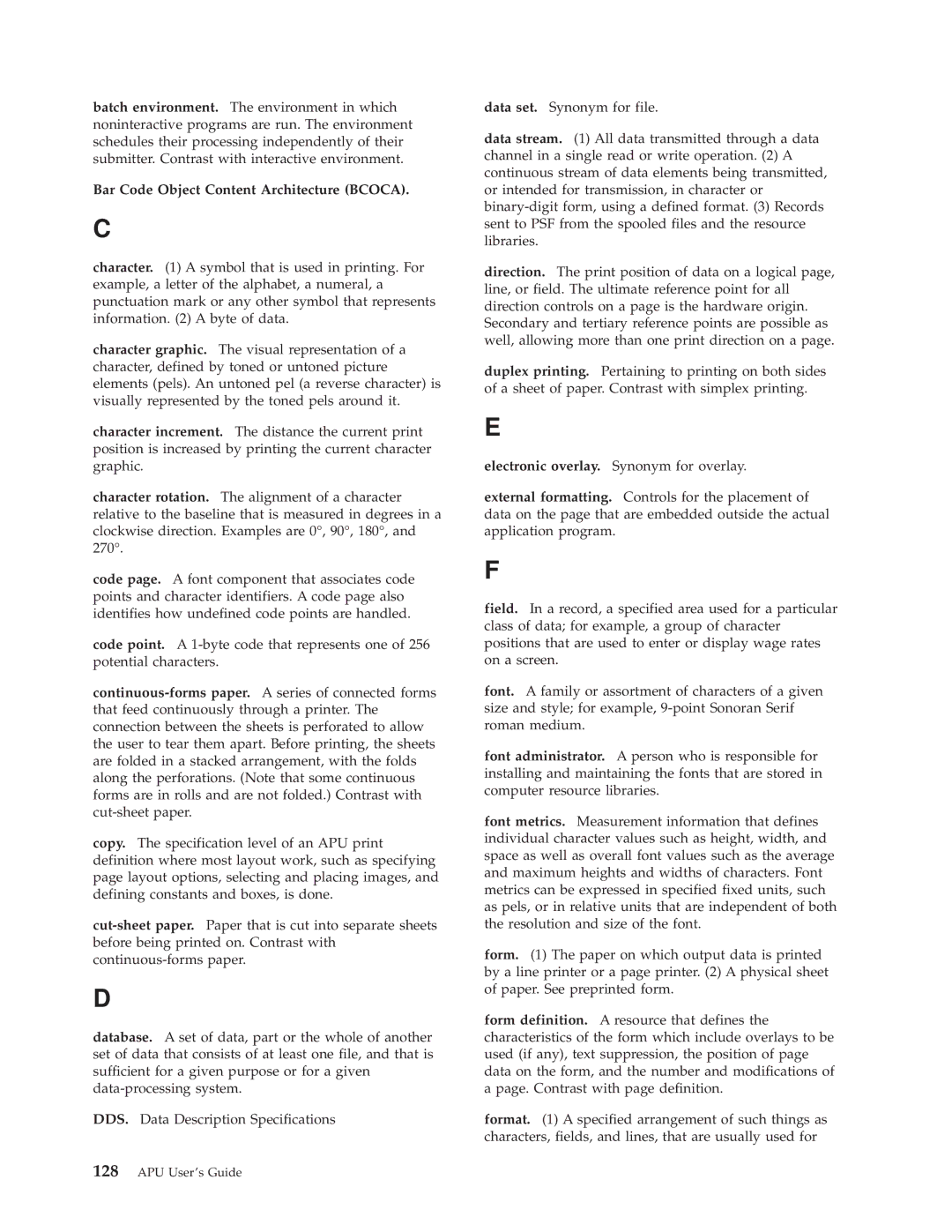batch environment. The environment in which noninteractive programs are run. The environment schedules their processing independently of their submitter. Contrast with interactive environment.
Bar Code Object Content Architecture (BCOCA).
C
character. (1) A symbol that is used in printing. For example, a letter of the alphabet, a numeral, a punctuation mark or any other symbol that represents information. (2) A byte of data.
character graphic. The visual representation of a character, defined by toned or untoned picture elements (pels). An untoned pel (a reverse character) is visually represented by the toned pels around it.
character increment. The distance the current print position is increased by printing the current character graphic.
character rotation. The alignment of a character relative to the baseline that is measured in degrees in a clockwise direction. Examples are 0°, 90°, 180°, and 270°.
code page. A font component that associates code points and character identifiers. A code page also identifies how undefined code points are handled.
code point. A
copy. The specification level of an APU print definition where most layout work, such as specifying page layout options, selecting and placing images, and defining constants and boxes, is done.
D
database. A set of data, part or the whole of another set of data that consists of at least one file, and that is sufficient for a given purpose or for a given
DDS. Data Description Specifications
data set. Synonym for file.
data stream. (1) All data transmitted through a data channel in a single read or write operation. (2) A continuous stream of data elements being transmitted, or intended for transmission, in character or
direction. The print position of data on a logical page, line, or field. The ultimate reference point for all direction controls on a page is the hardware origin. Secondary and tertiary reference points are possible as well, allowing more than one print direction on a page.
duplex printing. Pertaining to printing on both sides of a sheet of paper. Contrast with simplex printing.
E
electronic overlay. Synonym for overlay.
external formatting. Controls for the placement of data on the page that are embedded outside the actual application program.
F
field. In a record, a specified area used for a particular class of data; for example, a group of character positions that are used to enter or display wage rates on a screen.
font. A family or assortment of characters of a given size and style; for example,
font administrator. A person who is responsible for installing and maintaining the fonts that are stored in computer resource libraries.
font metrics. Measurement information that defines individual character values such as height, width, and space as well as overall font values such as the average and maximum heights and widths of characters. Font metrics can be expressed in specified fixed units, such as pels, or in relative units that are independent of both the resolution and size of the font.
form. (1) The paper on which output data is printed by a line printer or a page printer. (2) A physical sheet of paper. See preprinted form.
form definition. A resource that defines the characteristics of the form which include overlays to be used (if any), text suppression, the position of page data on the form, and the number and modifications of a page. Contrast with page definition.
format. (1) A specified arrangement of such things as characters, fields, and lines, that are usually used for
